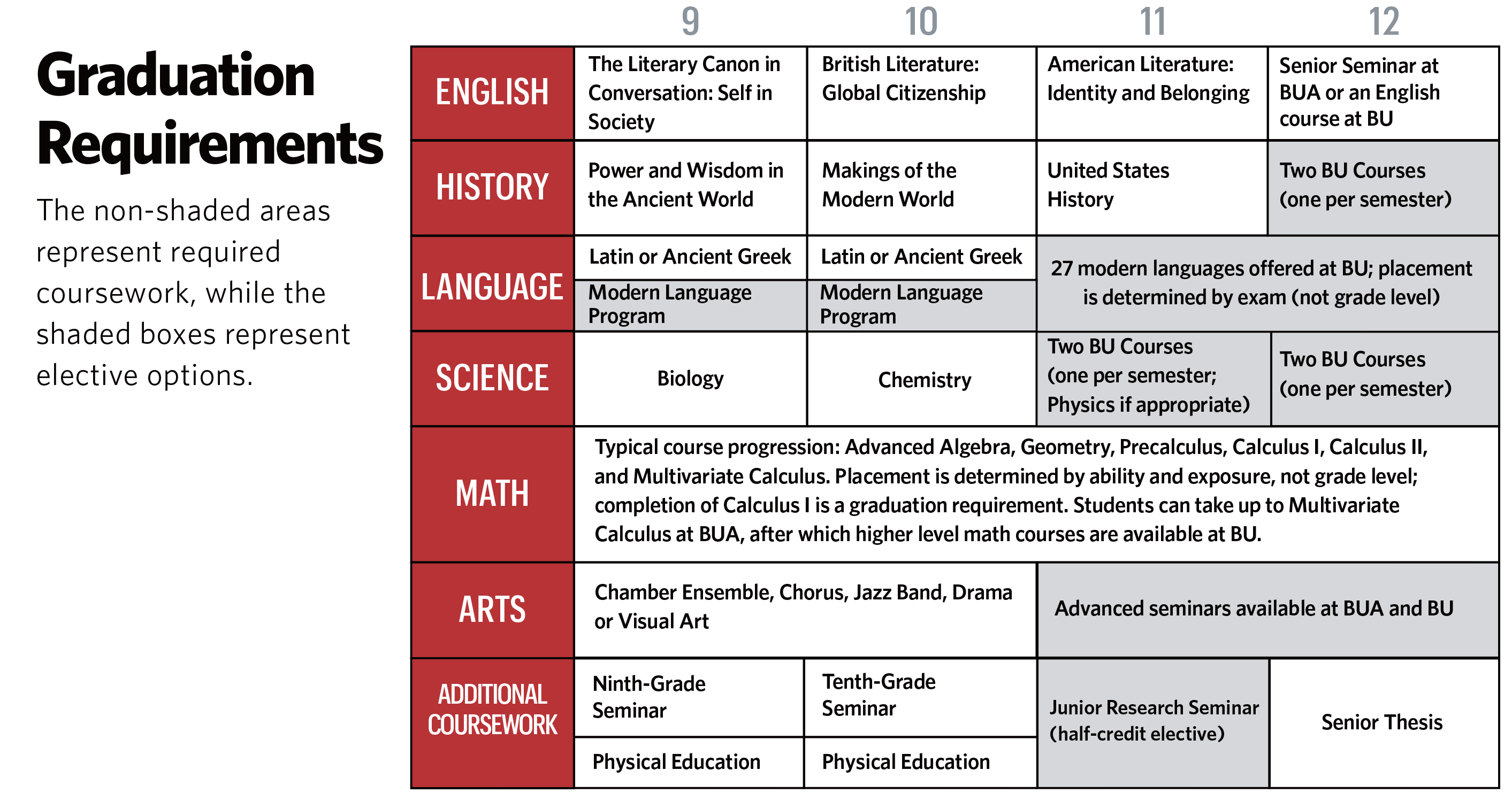Curriculum

Grades Nine and Ten
- Liberal Arts curriculum that includes English, history, science, mathematics, classical language, the arts, and physical education
- Provides students with a shared experience to support their later, more specialized learning
- Interdisciplinary approach to humanities by immersion in primary texts and an emphasis on close reading and writing
- A two-year study of Latin or ancient Greek
- Modern Language Program (optional)
- Biology (ninth grade)
- Chemistry (tenth grade)
- Mathematics (whatever level of mathematics students are prepared for, from Algebra to Multivariable Calculus at BUA and higher-level courses at BU)
- Ninth- and Tenth-Grade Seminars (fun, hands-on learning without the added pressures of grades or homework; Seminars rotate through various topics of study each year: Health & Wellness; Cultural Competency; Foundations in Language & Logic; Introduction to Research; Python & Machine Learning; and Engineering & Entrepreneurship)
Our approach to teaching the classical tradition in the humanities prompts students to understand historical perspectives, to think critically, to delve deeply, to master the use of primary texts, and to hone interpretive powers. Boston University Academy students learn how to question what they read; how to craft a well-reasoned argument; and how to appreciate the connections of literature, political theory, philosophy, religion, science, and history. Classes focus on the debate of “why” and “how.”
Grades Eleven and Twelve
- All upperclassmen continue to take courses offered in the Academy building in addition to enrolling in courses at Boston University.
- Students can pick from more than 2,000 BU courses including 20+ languages.
- Juniors typically enroll in a science and a modern language class at the University, while seniors’ selections vary widely.
- Students can select BU courses in disciplines including anthropology, sociology, economics, computer science, and more.
- All University courses are taken for credit with Boston University faculty and students.
- Most students earn as many as 48 college credits (the equivalent of 12 college courses or 1½ years) prior to graduating.
- Course credits may be transferred at the discretion of the college to which a student matriculates.
- Scientific research opportunities exist for students with an interest and aptitude in science.
- Most students graduate with proficiency in two languages, one classical and one modern.
- Seniors are required to complete a yearlong thesis project with the guidance of a professor and a BUA faculty advisor.